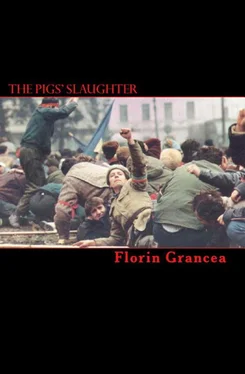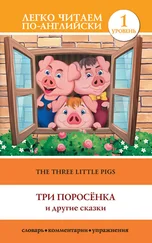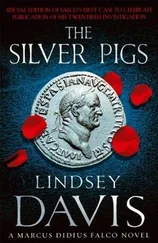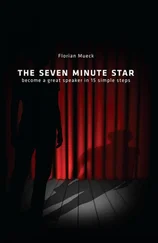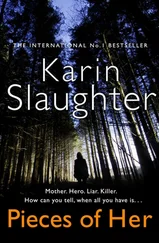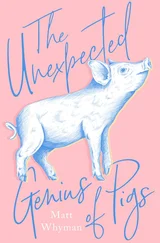Imagine the pig, now, with no legs. The next task was to cut the fat off the carcass. Mr. Brana made a long cut from the neck to the tail, and then cut off the back of the pig in two wide and heavy pieces. It is called “slănínă” in Romanian and it is mostly fatback. We do not remove the skin. These pieces are heavy and they have to withstand hanging on hooks for many months.
I took the meat down into the basement and put it on a table. I put several kilos of salt on one strip and then covered it with the other strip covering that with salt again. The salt would suck the water out of it, helping to preserve it. I know that the meat industry injects salt water and shit into meat products to make them weigh more in order to deceive clueless customers, but this was not our way of doing it. We loved our food, our natural food.
Back in the backyard the pig’s head was cut off. After being washed and smashed to get at the brains — a delicacy children love to eat — it went into a big pot to be boiled. Its meat and cartilage would fill the pig’s stomach and become what is known as “tobă”, a heavy spicy sausage.
It was time, so Mr. Brana took a butcher knife and cut the pig’s spine in two. Opened like this the body revealed its insides to us. The short knife collected for my mom the lungs, liver, kidneys, and the damaged heart. All of which went into a pot to be boiled. The stomach and the intestines went into a bucket to be washed in the river, and the bladder, washed with water, was cut in pieces and fed to the cats and dogs. It was the only part of the pig that we did not use.
It was before 2:00 pm when my mom gathered us around the table for the pig’s funeral feast. Like in real funerals, after burying a beloved, people gather to share food and drinks in remembrance. We had to have a ceremony for our pig as well. Lovely and welcomed it was, because we could eat the meat without sinning, four or five days before Christmas! The pig’s ears were meat, too, but somehow the rules were not as strict when applied to them. Only a couple of ears are not a big deal, and I never saw a pig with more than two.
For the feast, boneless red meat was fried with onions, sweet paprika, pepper and salt. After six weeks on beans and cabbage it was, served with homemade fresh bread, an angel’s feast. Of course, empty glasses were quickly refilled and the euphoria — mainly the one that had to be suppressed in the past — could be expressed with conviction and hope. Fourteen years old, holding a plate of meat, a mug of hot wine in hand, in a kitchen crowded with half-drunk people and buckets full of meat, bones and fat, it was the first, and I suspect the last, time that I was really proud of being Romanian.
The son of a proud nation that was fighting for its freedom, I was celebrating our nation of people who had balls. I didn’t pity those who died in Timişoara, not one single one of them. They died for freedom, they were heroes, and they had certainly bigger balls than I had at the time. We had prayed for the pig when we ate its meat. Now, because the feast was over and we had to make at least 4 kinds of sausages by nightfall, we had to pray again.
“Thank you Lord for this pig that you brought to our table. Thank you Lord for taking care of us. Take care also of those who left this cruel world these last days at the hands of communists, and keep us safe, keep the Russian pigs away from our country, don’t let them come to crush us in our motherland nest”, my father finished and emptied his glass on the ground. Mr. Brana said “Amen” and emptied his glass as well on the kitchen floor. It was customary to empty one’s glass on the ground for the last toast. The souls of the dead had to drink too.
My mom had removed the carpet in the early hours of the morning and the place was already quite dirty and, anyway, it didn’t matter.
My father took a knife and cut two blocks of good meat. One for Mr. Brana, for helping us and one for Uncle Lulu, for sipping the hot wine with us. In a starving country where people were risking their lives to overturn the dictator there wasn’t a more appreciated present.
More drinks and they went home. With an ear for Radio Free Europe, we started to mince the meat, onions and garlic. We had two mincing machines. One that my grandmother got as a wedding present in 1921, and another that my mother got as a wedding present in 1974. I could tell that the one from before WWII was better but, because it was bigger, my father had it to himself.
“The citizens are taking to the streets and the army is using machine guns on them”, the passionate report that we heard on the radio made us stop for a second.
“We have to win”, “the pig must go down”, my father said furious and increased the speed of the mincing machine. At that point my granny returned with the washed stomach and intestines. Actually “washed” is a kind word for what happened to them. Of course she had washed them, but washing them was just the start of a long and laborious procedure. First she emptied them. Now, if you have to do this inside be forewarned that it is a stinky procedure. But out in the open air and at minus 10 degrees centigrade it is not so bad. Then she washed them in clean water, and rubbed them in salt. Finally she took a blunt knife and pulled them between its blunt blade and a polished wooden block so that all the interior walls were ejected. In the end only the transparent exterior membrane remained. This was rubbed in salt again, and again washed, and rubbed in salt again and then washed again, until it lost its odour. The same procedures were applied to the small and big intestines, and even harsher treatment for the stomach.
It was about time to fill them up. Before it got dark, and before my father got drunk. The big intestine became the membrane for “caltabosh”, a specialty made from the head’s meat, lungs, kidneys and heart. The small intestine was divided between the meat sausages, the liver pate and the “sângerete” and the blood sausages. All the other small cuts of meat and head cartilages went into the pig’s stomach to become the highly prized “tobă”, which is also the Romanian word for drum.
It was suddenly night outside and we were bloody tired. The meat sausages went into the smokehouse. All the other specialties followed after first being boiled. I made the fire. I used the customary willow wood and willow wood sawdust to cover the fire. That was the best smoke I could imagine for our fresh sausages.
We stayed up to clean the kitchen floor, scrub it with brushes and rinse it with hot water. The next morning my mom would put the carpet back, but that had to wait until the next morning. Soon after my father called it a day.
And what a day it had been! I was full of meat, the first time in many months, my house was warm and outside, in the snow, the willow smoke was coming out of the smokehouse like a surreal fog. The present was foggy but with signs of prosperity visible, and going to sleep the night before I really hoped for a more prosperous tomorrow.
“Dad!” I whispered from my room…
“What? Go to sleep,” his answer came through the door that
was separating our bedrooms.
“If Ceauşescu falls, what’s gonna happen?”
My question hung in the air, frozen for many minutes. “We will be free!”
I could sense the emotions running deep within my father’s
thoughts. Free. Like an echo, the word bounced back and forth inside my head. Free. Wasn’t I free at that very moment? Was I in a kind of prison? Free…
I was rebelling like all 14-year-old rebels, so wasn’t I free? Wasn’t my dad free? Because we lived in a house and not in an apartment. We were required to give, according to the rules, a pig, our pig, to our motherland. Our motherland was fucking hungry and wanted to eat our pig. But we just slaughtered it for ourselves. Because we had no grain and no potatoes to raise two pigs…And we never fucking gave our pigs to our motherland! We did have choices, didn’t we? We lived in a communist country and we lived in fear, but for some reason I didn’t think of myself as not being free.
Читать дальше
